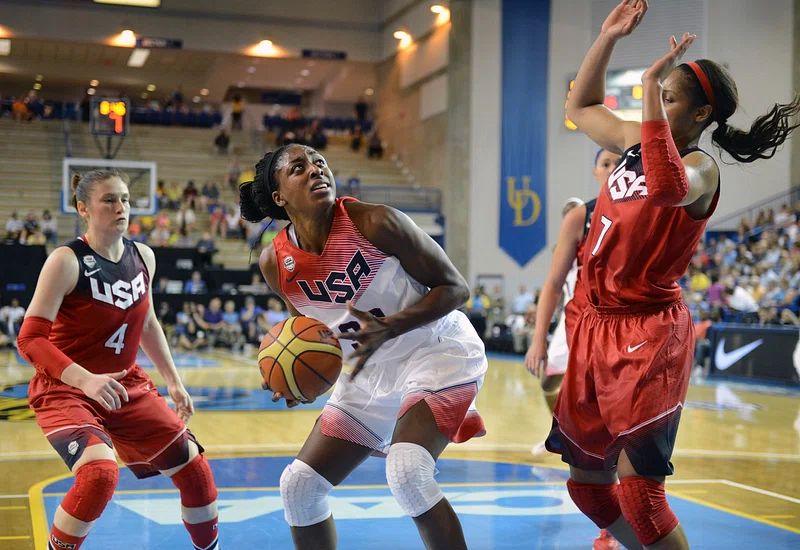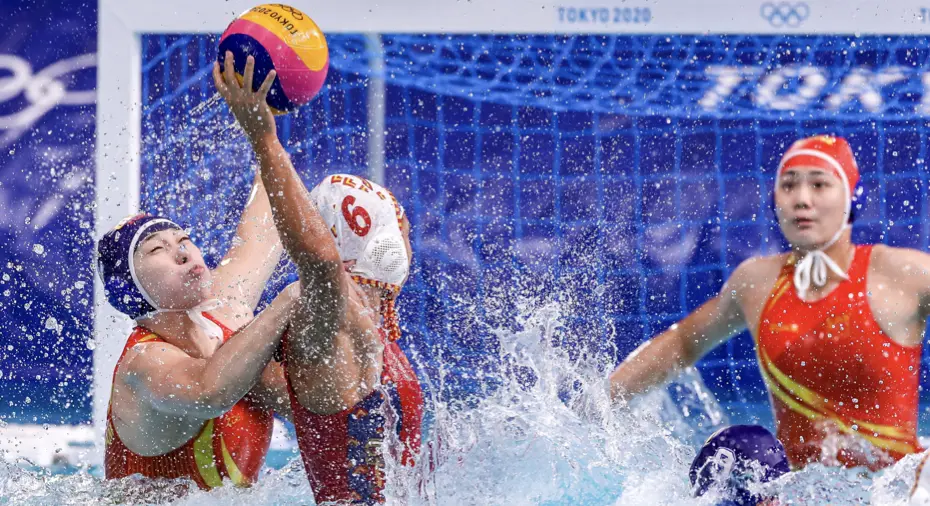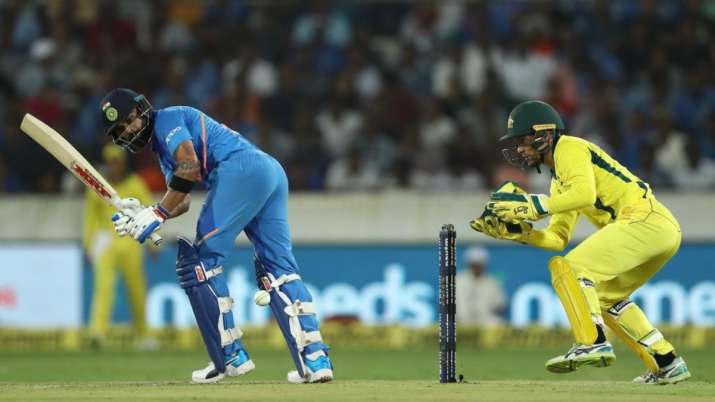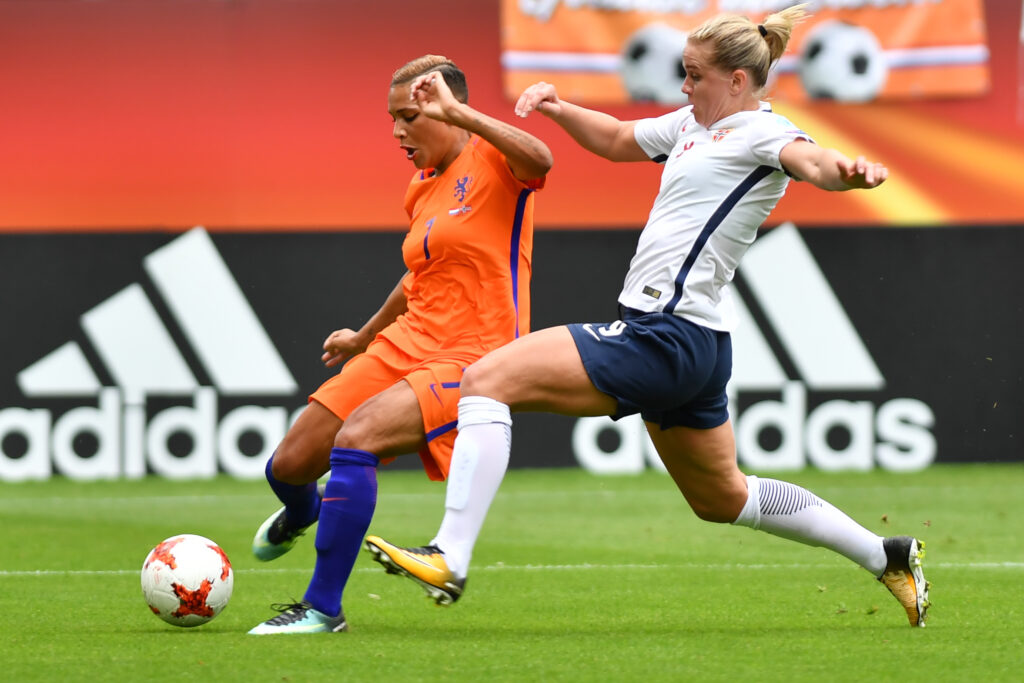For Love of The Game
I love sports. I truly do.
I love the athletic pursuit of excellence and victory. The strategic planning involved in trying to outsmart your opponents and find a competitive edge. I love the unique and intricate rules that govern them and the valiant attempts made to work around them. I love how it reminds you that there’s always room to grow, always something you can improve on and that winning is meaningless without others to share in the victory.
There’s so many things I love about sports, but when I dive deeper into the nuances surrounding my affection, there’s a few unique elements that capture the source and essence of that connection.
-
Team sports > Individual sports for me. It’s not even close.
-
The coaching & management side of the game is equally as compelling to me as playing the game itself.
-
There’s nothing more powerful to me than the collective spirit, effort and cohesion of a team working together to reach a shared goal.
So- what does my love for sports have to do with launching a Freelance Talent Network for Web3, AI Ventures and other emerging technology sectors?
I was getting there … geez.
Chemistry & Culture
Having played competitive sports and started a few product & agency businesses, I’ve seen firsthand how startup and enterprise teams struggles so much more than sports teams do to establish positive chemistry and culture. From a relationship standpoint, I’ve wrestled with the difficult and often dysfunctional dynamics between clients and services teams. I’ve seen the good, the bad and the ugly in this regard - but the negativity, blame and frustration on both sides has always captured and bothered me more than the successes. Why do clients and service partners find it so hard to work well with one another - particularly within the tech sector.
Furthermore - why can’t companies and their talent partners work more like the sports teams I’ve been a part of and work in a more unified and collaborative way to reach their shared goals? This question becomes even more relevant within the innovation economy working at the edge of technology, collaborating more and more with distributed freelance talent all around the world.
Is this just the way the game is played or is there something we can do to improve the experience and outcomes on both sides?
The Drawing Board
More than just pondering this question, I’ve spent the better half of the last decade experimenting with service models and cultural dynamics within different Product, Design and Marketing teams - testing operational principles that might foster more positive collaboration between our clients and team. I’ve tinkered with OKRs, payment plans, deliverable systems and approaches focused more on time and effort. I’ve tried weekly reporting, more open and collaborative workflows, shared approvals - you get the idea.
At times it felt like we’d cracked parts of the code and it would feel amazing. Our collaborations led to some inspired projects, meaningful outcomes and sensations of pride and belonging through the years. However, the truth is that there was also a lot of circumstances plagued by negativity, drama, frustrations and friction. When reflecting even further, it was clear that the biggest challenges rested more in relationship breakdowns with clients vs. the work produced in and of itself.
You might say: “that’s normal! There’s bound to be ups and downs and it’s not like sports teams never have issues with personnel and teamwork at various points in their season” - and while that may be true - my personal experiences in the tech sector have shown me that there’s something deeper going on that creating a unique divide between clients and their service partners.
The designer/teammate side of me doesn’t want to give up on this challenge and so - I decided to look more concretely at the way sports teams vs. tech teams collaborate to uncover some truths that could help both sides move forward.

Same but Different
When we dive deeper to think about some of the most critical elements that foster positive team dynamics and culture in sports and tech teams - some interesting topics come to the fore. I’ve outlined some of these investigations and share how TeamSpark plans to approach these insights to help clients and talent win together within the innovation economy.
Goal Clarity
Sports Teams have very clear and measurable goals (e.g., winning games and championships) and a defined season or timeline to do that within. The immediate feedback from games and practices provides constant motivation and alignment towards these goals.
Business Teams can be more abstract, fluid and long-term (e.g., increasing market share and brand awareness). The feedback loop takes longer and is often hard to measure which make it harder to maintain focus and keep motivation high.
Because goals are less defined, the situation seems to call for TeamSpark to step up and ensure that milestones and goals on both sides are agreed to more concretely to get everyone pointing at the same shared outcome. This means stepping between “owners + players” to play a hybrid GM, Coach and yes: referee role so to speak to help enforce a mix of strategic alignment and fair play.
Role Clarity
Sports Team usually have very clear roles for players (e.g., shortstop, forward, goalie, etc.) and each member understands their key responsibilities. This clarity helps streamline collaboration.
Business Team roles are also more fluid and overlapping, leading to potential confusion and conflicts around who is responsible and accountable (which is likely why the RACI chart was invented : ) This ambiguity can hinder effective collaboration.
Helping clients and talent understand and define the project based roles they need to play as well as appreciating the broader roles that people play within a company or startup (often folks wear multiple hats) is a key consideration.TeamSpark needs to remove the fuzziness and taking ownership and accountability for ensuring roles are defined at the start of the ‘game’.

Cohesive Team Structures
Sports Teams train together in the off season and because of this - they have a chance to bond more by the time their seasons begins. Relationships can be tight and there’s a strong sense of unity amongst most teams after a few games.
Business Teams have become more and more remote and dispersed and that becomes even more complicated with layoffs and hires. It feels harder than ever before to connect and build strong relationships with others and feel united with anyone outside your core collaborators.
This is a really tricky one, but TeamSpark has a lot of plans to address this specific challenge by investing in creative virtual and in person events/meetings and product features that will bring people closer together and create space for relationships to form and last during and after projects are tackled.
Training and Practice
Sports Teams: We all know how important regular training and practice are to help a team build those positive repeatable processes.
Business teams, especially smaller one (i.e. not corporate ones) not typically have regular, dedicated times for team-building or skills development. Training often happens on the job, which can be sporadic at best.
This particular problem is a really critical one because of how fast moving tech domains like Web3, AI and other emerging tech are and how clients are often in a position that they need both education and expertise to succeed. From the talents perspective, freelancers are well positioned to do more training on their own, however, they do so at the risks of taking their eye of the ‘ball’ for sales and that risk a huge threat to their livelihood. My background before getting into the world of Design & Tech was as an Educator for a number of years and I’ve long believed that we need a new way to foster just in time education in work environments. I see TeamSpark emerging as equal parts Facilitator and Educator for talent and ventures alike. We have lots of long term plans to tackle this in new and exciting ways.

Motivation and Rewards
On Sports Teams, athletes are highly motivated by the desire to win which encourages a strong team spirit and collaborative effort. Winning sorta is the reward although financial aspects have evolved more and more into the conversation in professional sports as we’re all well aware.
Business professionals aren’t always the founders/shareholders and so - they have a really wide variety of possible motivations, including career advancement, making money or establishing a legacy within a particular domain. These can be a source of positivity, but at times can lead to misalignment with overall team objectives.
In this particular case, freelance talent falls more on the side of business professionals and thus - struggle with many of the same issues when it come to incentives. We see an opportunity for TeamSpark to play a facilitative role to make sure incentives and motivations are really clearly understood on both sides and wherever possible - matching talent to projects/clients using broader data points beyond skills alone.
All of those elements lead to some really exciting opportunities regarding ways to foster more positive outcomes - but this one topic is truly one of the most significant ones to address.
Conflict Resolution
Usually when we think of conflicts with sports teams - it’s between one team and another. Within the team itself however, disputes are usually resolved quickly in the ‘clubhouse’ or on the field to keep momentum going in the middle of competition and practice. Coaches and team captains play a huge role here to make sure people come back together after something heated or challenging arises and that things resolve positivity.
Trying to solve a conflict within a business team is a lot slower and frankly - more complex, because every issue has a additional layers of influence around it depending on your role in the company, contracts, politics and individual interests.
Overall, there’s just too many legal issues that arise between clients and talent in the context of trying to build brands, product and marketing campaigns - it’s just not something that should be as prevalent as it is. There’s also way too many relationships that breakdown right at the end of a huge amount of collective effort. Instead of celebratory drinks or lunches - project often don’t just end without fanfare - they end with disputes.
I see this as a huge opportunity for TeamSpark to play a facilitative captain role on behalf of both teams to ensure that "owners and players” are able to voice issues early and resolve them logically and fairly as they arise vs. allowing them to fester or spoil what should be a shared triumph of collaboration. We need to find a way to deal with our problems with more speed and humanity rather than frustration and legal action.
The Game Has Changed

The game of life and business has changed and will continue to do so, but as we’ll all witnessed and experienced: the pace of that change is more pronounced than ever before. Advances in technology have disrupted aspects of our social, cultural and business lives and I don’t think that’s a hot-take in any way.
People are amazing at adapting to change and I have full confidence that we’ll get there from a global and local perspective in terms of how we work with one another.
For startups and enterprise teams around the world, the challenge has shifted from the Mad Men era of creative scarcity where it was really hard to find relevant talent to a world where there’s an over-abundance of access to skilled people from around the world. In this new world order, the greatest challenge shifts from “how can we possibly get this done?” to “who can we trust to get this accomplished in the best possible way?”. This challenge is even more complex for those working at the forefront of technology (Web3, AI, Quantum Computing, etc.)
Game On.
We know that the game has changed and will continue to change and we’re here for it! We want to evolve with our clients and talent roster and continue to explore the best ways to collaborate more effectively as we enter the next phase in the future of work and while doing so, find more ways to win and yes - celebrate together.
TeamSpark is on a mission to support greater collaborative teamwork by playing the required roles of teammate, captain and coach so that we can all win and grow together.
See you on the field.





评论 (0)